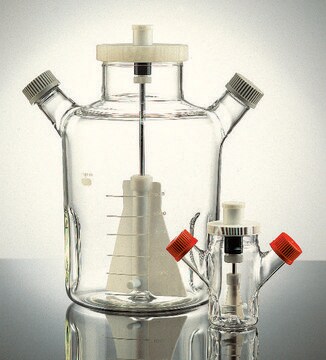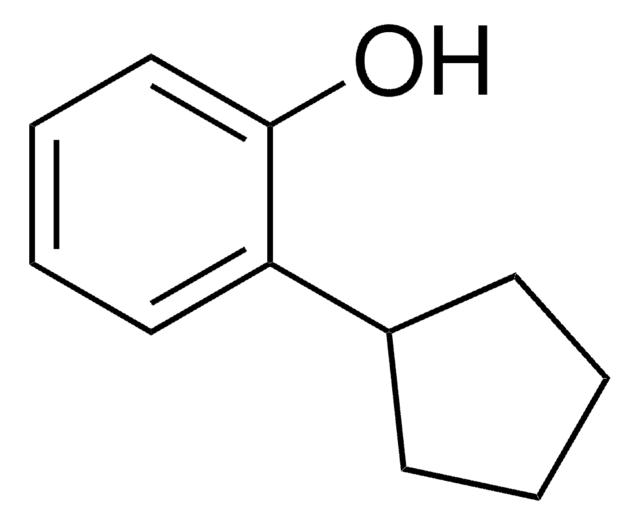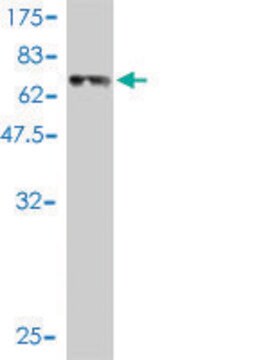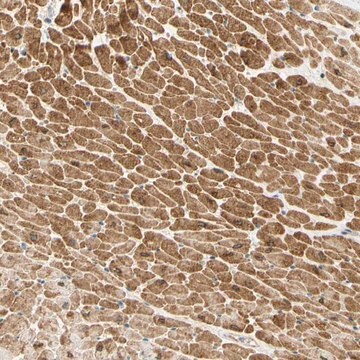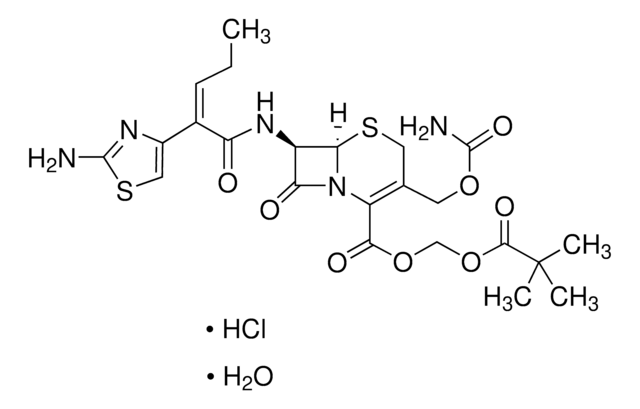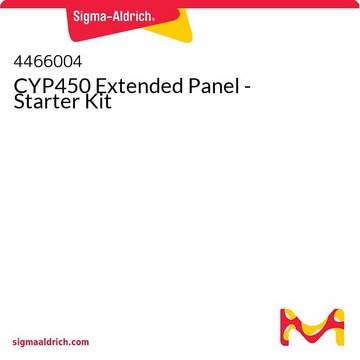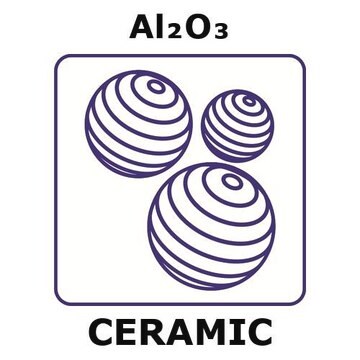HTS104M
ChemiSCREEN Membrane Preparation Recombinant Human β1 Adrenoceptor Receptor
Human beta 1 GPCR membrane preparation for Radioligand binding Assays & GTPγS binding.
Synonym(s):
β₁ Adrenoceptor Membrane Prep, ChemiSCREEN Receptor Kit
Sign Into View Organizational & Contract Pricing
All Photos(2)
About This Item
UNSPSC Code:
41106514
eCl@ss:
32161000
NACRES:
NA.84
Recommended Products
biological source
human
Quality Level
recombinant
expressed in Chem-1 cells
manufacturer/tradename
ChemiScreen
Chemicon®
technique(s)
ligand binding assay: suitable (GTPγS)
radioligand binding assay (RLBA): suitable
NCBI accession no.
UniProt accession no.
shipped in
dry ice
Gene Information
human ... ADRB1(153)
General description
Full-length human ADRB1 cDNA encoding the β1 adrenoceptor
The endogenous catecholamines epinephrine and norepinephrine have profound effects on smooth muscle activity, cardiac function, carbohydrate and fat metabolism, hormone secretion, neurotransmitter release, and central nervous system actions. These activities are mediated by GPCRs belonging to two subfamilies, the α- and β-adrenergic receptors (Bylund et al., 1994). The three members of the β-adrenergic receptor family, β1, β2 and β3, couple to Gs to increase cAMP upon activation. In the heart, the β1 receptor constitutes 70-80% of the β-adrenergic receptors. Activation of cardiac β-adrenergic receptors acutely increases heart rate, cardiac output, and cardiac automaticity, and chronically increases cardiac myocyte apoptosis. In failing hearts, the β1 subtype is downregulated and desensitized, probably as a result of increased catecholamine levels. As a result, β-adrenergic receptor antagonists (β blockers) are effective in the treatment of congestive heart failure and arrhythmia (Lohse et al., 2003). Millipore′s β1 adrenoceptor membrane preparations are crude membrane preparations made from our proprietary stable recombinant cell lines to ensure high-level of GPCR surface expression; thus, they are ideal HTS tools for screening of antagonists of β1 adrenoceptor interactions. The membrane preparations exhibit a Kd of 2.6 nM for [125I]-(-) Iodocyanopindolol (ICYP). With 5 µg/well β1 Adrenoceptor Membrane Prep and 0.25 nM [125I]-(-)ICYP, a greater than 15-fold signal-to-background ratio was obtained.
Application
Radioligand binding assay and GTPγS binding.
Biochem/physiol Actions
GPCR Class: A
Protein Target: beta 1
Target Sub-Family: Adrenergic
Quality
| 5 µg/well | 10 µg/well | |
|---|---|---|
| Signal:Background | 28.5 | 34.6 |
| Specific Binding (cpm) | 27002 | 28467 |
SPECIFICATIONS: 1 unit = 5 μg membrane preparation
Bmax: 47.9 pmol/mg
Kd: ~2.6 nM
Specifications
Inucbation Conditions
Membranes are mixed with radioactive ligand and unlabeled competitor (see Figures 1 and 2 for concentrations tested) in binding buffer in a nonbinding 96-well plate, and incubated for 1-2 h. Prior to filtration, an FC 96-well harvest plate (Millipore cat. # MAHF C1H) is coated with 0.33% polyethyleneimine for 30 min, then washed with 50mM HEPES, pH 7.4. Binding reaction is transferred to the filter plate, and washed 3 times (1 mL per well per wash) with Wash Buffer. The plate is dried and counted.
Binding buffer: 50 mM Hepes, pH 7.4, 5 mM MgCl2, 1 mM CaCl2, filtered and stored at 4°C
Radioligand: [125I]-(-) Iodocyanopindolol (Perkin Elmer # NEX189)
Wash Buffer: 50 mM Hepes, pH 7.4, 500mM NaCl, filtered and stored at 4°C.
Membranes are mixed with radioactive ligand and unlabeled competitor (see Figures 1 and 2 for concentrations tested) in binding buffer in a nonbinding 96-well plate, and incubated for 1-2 h. Prior to filtration, an FC 96-well harvest plate (Millipore cat. # MAHF C1H) is coated with 0.33% polyethyleneimine for 30 min, then washed with 50mM HEPES, pH 7.4. Binding reaction is transferred to the filter plate, and washed 3 times (1 mL per well per wash) with Wash Buffer. The plate is dried and counted.
Binding buffer: 50 mM Hepes, pH 7.4, 5 mM MgCl2, 1 mM CaCl2, filtered and stored at 4°C
Radioligand: [125I]-(-) Iodocyanopindolol (Perkin Elmer # NEX189)
Wash Buffer: 50 mM Hepes, pH 7.4, 500mM NaCl, filtered and stored at 4°C.
Physical form
One package contains enough membranes for at least 200 assays (units), where an unit is the amount of membrane that will yield greater than 15-fold signal:background with 125I-labeled (-)Iodocyanopindolol at 0.25 nM.
Liquid in packaging buffer: 50 mM Tris pH 7.4, 10% glycerol and 1% BSA with no preservatives.
Packaging method: Membranes protein were adjusted to the indicated concentration in packaging buffer, rapidly frozen, and stored at -80°C.
Liquid in packaging buffer: 50 mM Tris pH 7.4, 10% glycerol and 1% BSA with no preservatives.
Packaging method: Membranes protein were adjusted to the indicated concentration in packaging buffer, rapidly frozen, and stored at -80°C.
Storage and Stability
Maintain frozen at -70°C for up to 2 years. Do not freeze and thaw.
Legal Information
CHEMICON is a registered trademark of Merck KGaA, Darmstadt, Germany
Disclaimer
Unless otherwise stated in our catalog or other company documentation accompanying the product(s), our products are intended for research use only and are not to be used for any other purpose, which includes but is not limited to, unauthorized commercial uses, in vitro diagnostic uses, ex vivo or in vivo therapeutic uses or any type of consumption or application to humans or animals.
Storage Class Code
12 - Non Combustible Liquids
WGK
WGK 2
Flash Point(F)
Not applicable
Flash Point(C)
Not applicable
Certificates of Analysis (COA)
Search for Certificates of Analysis (COA) by entering the products Lot/Batch Number. Lot and Batch Numbers can be found on a product’s label following the words ‘Lot’ or ‘Batch’.
Already Own This Product?
Find documentation for the products that you have recently purchased in the Document Library.
What is the role of beta-adrenergic signaling in heart failure?
Lohse, Martin J, et al.
Circulation Research, 93, 896-906 (2003)
Our team of scientists has experience in all areas of research including Life Science, Material Science, Chemical Synthesis, Chromatography, Analytical and many others.
Contact Technical Service